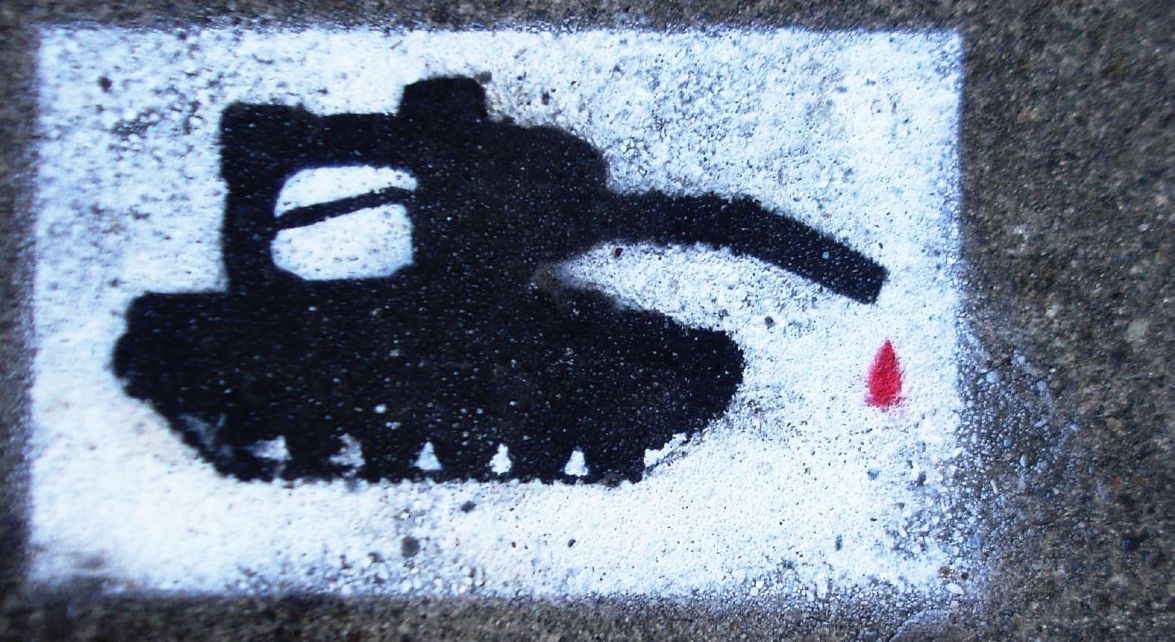Bleeding Earth Dry

Credit to Author: Becky Ferreira| Date: Thu, 14 Sep 2017 18:09:45 +0000
This is a companion piece to today’s Terraform, “The Story Is in the Soil.”
Blood and oil, two rich flowing byproducts of Earthly life, are deeply intertwined as foils for each other in popular culture. George Miller’s Mad Max: Fury Road played with the trope, juxtaposing battered people getting fueled up by human “blood bags” with battered vehicles mainlining gallons of “guzzolene.” Paul Thomas Anderson’s There Will Be Blood spelled out the connection explicitly, capitalizing on the eerie similarities between projectile blowouts of crude oil wells and blood gushing from a mortal wound.
Today’s Terraform, Justin Lee’s “The Story Is in the Soil,” makes a new figurative leap by collapsing these two evocative fluids into one vein. Using the language of fossil fuel extraction—”drilling,” “ore,” “miners”—Lee paints a world in which a lush circulatory system of human O-negative blood is discovered, tangled and untapped in the ground below us. There’s no need to cast symbolic shades between the red blood-flow within our bodies and the black oil-flow within Earth, because they are intimately conjoined in this world:
“Imagine a blood well, a tower of woven steel, an endless gout spraying high into the air, the crimson drops turned to sparks by the afternoon sun. Now, imagine the same scene at night, those drops falling on you, black as sin in the mouth of an infant. See them glisten in the moonlight. Feel them cool against your skin.”
The existence of Earth Blood sparks debates about its origins and potential for exploitation, and inspires the creation of a new scientific field of “geophlebology.” The story doesn’t mention what Jehovah’s Witnesses, who are wary of blood transfusions for religious reasons, make of this development, but it does note that Gaia hypothesis advocates, who believe life on Earth is a meta-system that curates its own propagation, enjoy “a period of euphoric vindication” over such a literal manifestation of their hunch.
The ethical and scientific issues that are outlined on the surface of the story are deepened by the resonant mixed metaphor of crude oil and human blood. Both fluids are produced by living creatures, but blood is an emblem of vitality and health, while oil is liquified death made from corpses of a bygone era.
The story highlights the idea that oil is not only the child of death, but perhaps a harbinger of it. Fossil fuels have generated enormous wealth and beneficial technologies, but what will those gains be ultimately worth against potentially civilization-ending pollution and climate change that have accompanied industrial-scale consumption?
Read More: Elon Musk: Burning Fossil Fuels Is the ‘Dumbest Experiment in History, By Far’
Just as the Gaia hypothesis suggests that life on Earth perpetuates an environment friendly to its own success, perhaps oil also engineers its propagation, through the vector of death, which it is born and bred from, and which it is currently begetting as a potential mass extinction event linked with fossil fuel consumption.
Lee’s quasi-anthropomorphization of Earth as a human-type blood bag hits these themes in a visceral way, forcing the reader to empathize with the feeling of being drained of life.
Get six of our favorite Motherboard stories every day by signing up for our newsletter.
https://motherboard.vice.com/en_us/rss